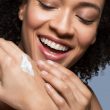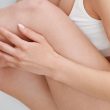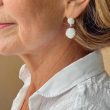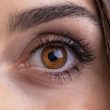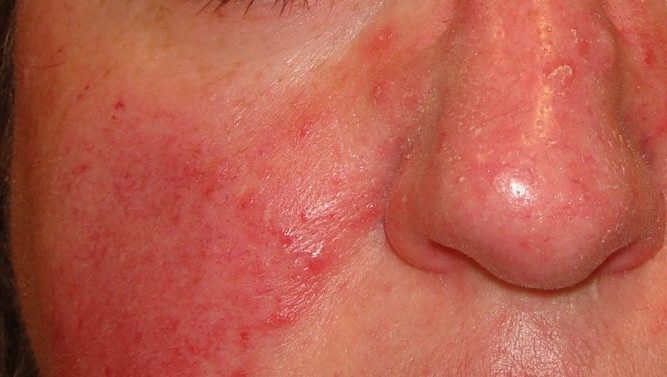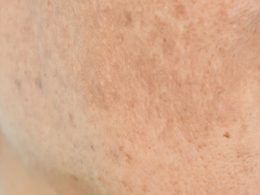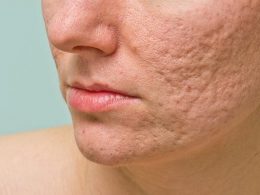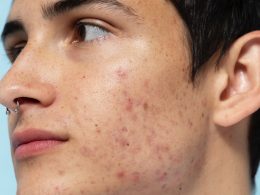The information we provide is general and should not replace the advice of your doctor or dermatologist. In any case, we recommend that you turn to them for diagnosis and treatment of your skin problems.
Rosacea is a skin disease that affects the face, causing redness, pimples, and visible blood vessels. In this article, we’ll explain everything you need to know about rosacea: how to treat it, the causes, symptoms, treatments, remedies, natural cosmetics to use, and how to prevent and manage. We will also give you some tips to improve your quality of life and your self-esteem.
What is rosacea and what causes it?
Rosacea is a chronic inflammatory skin disease, which affects the face, especially the cheeks, forehead, chin, and nose. You can recognize it because it manifests itself with:
- Flushing: sudden and temporary redness of the skin
- Persistent erythema: permanent and diffuse redness
- Papules and pustules: small, inflamed, pus-filled lesions
- Rhinophyma: thickening and enlargement of the skin of the nose
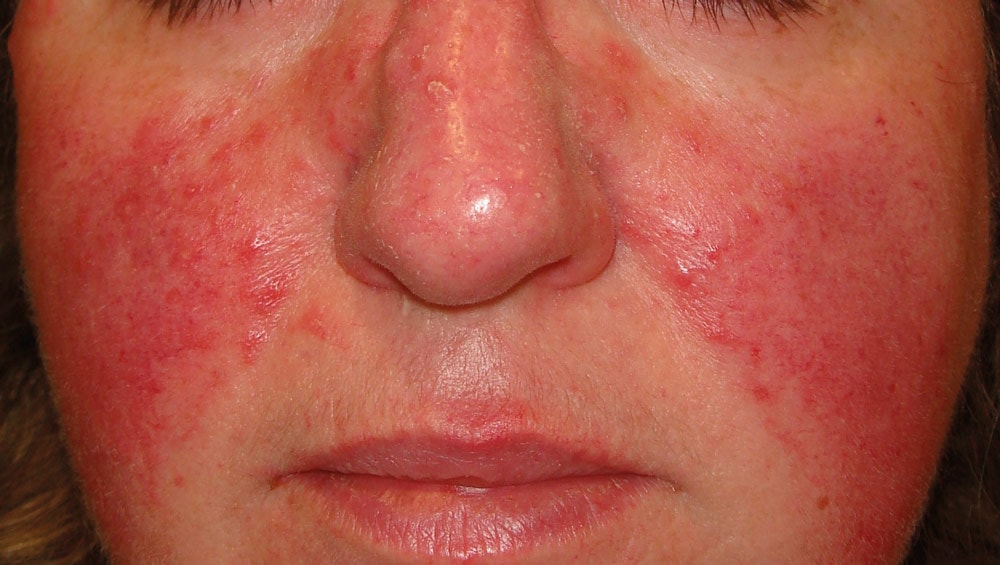
The exact cause of rosacea is unknown. It can be caused by a combination of factors, some of which are known and can trigger or worsen the condition, such as:
- Exposure to the sun
- Stress
- Sudden changes in heat or cold
- Alcohol
- Spicy or spicy foods
- Physical exertion
- Certain medications
What are the symptoms and signs of rosacea?
The symptoms of rosacea can vary from person to person, but in general we can trace them back to four main types, from which four types of rosacea also derive:
- Persistent redness and dilated blood vessels on the face, which may be accompanied by a burning or tingling sensation.
- Papules, pimples, inflamed pustules on the face, similar to acne, but without blackheads or whiteheads. They may be accompanied by redness and swelling.
- Thickening and enlargement of the skin, especially on the nose, which takes on a nodular and wrinkled appearance. It can also affect other parts of the face, such as the ears, chin, forehead, and eyelids.
- Inflammation of the eyes and eyelids, which may present with redness, itching, burning, watery eyes, dryness, sensitivity to light, and blurred vision.
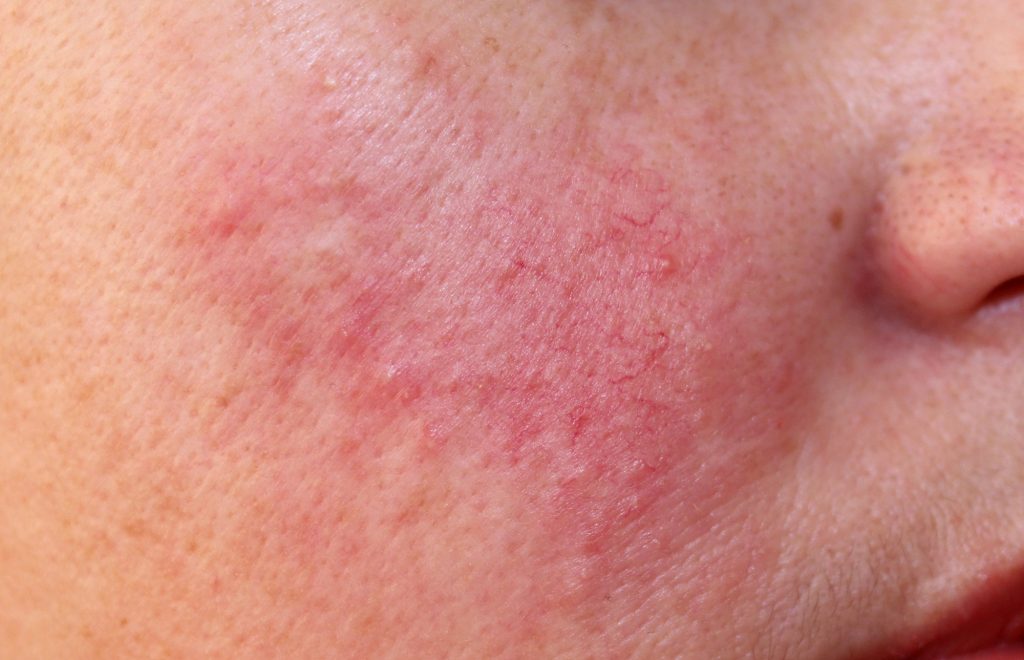
How is rosacea diagnosed?

The specialist may also sometimes ask you to do some tests to rule out other skin diseases that may have similar symptoms, such as acne, seborrheic dermatitis, lupus erythematosus or couperose.
What treatments are available for rosacea?
How to treat rosacea? There is currently no definitive cure for it, but your dermatologist may prescribe some treatments that can help control and reduce the signs and symptoms of the disease, including the use of:
- Medications: both topical, such as creams, gels, or lotions to be applied to the skin, and oral medications, such as tablets or capsules, containing antibiotics, anti-inflammatories, or other active ingredients, which help reduce inflammation, redness, and skin lesions.
- Laser or pulsed light therapies: to target dilated blood vessels or thickening of the skin, eliminate or reduce redness and other symptoms.
- Surgery: to remove excess skin tissue and improve the aesthetic appearance of the face.
Treatments for rosacea must be prescribed and monitored by a dermatologist and can have side effects, so it’s important to follow your doctor’s directions and not do it yourself!
What are the natural remedies for rosacea?
In addition to following specific treatments, there are also some natural remedies and tricks that can help alleviate the symptoms of rosacea and improve its management. Let’s see them together!
How to Prevent and Manage Rosacea Attacks
To improve your quality of life, it is very important to prevent and manage rosacea attacks in the best possible way.
Rosacea: The Importance of Monitoring

ROSACEA: WHAT TO AVOID
- Avoid skin products containing alcohol, strong fragrances, or irritating ingredients that can worsen skin
irritation
- Avoid aggressive cosmetic products, such as scrubs, peels, exfoliating
- Avoid sun exposure without sunscreen suitable for sensitive
skin
- Avoid sudden changes in temperature. Too hot or too cold can cause more reactions, we are thinking for example of the steam too hot in the shower, the water too hot, the hot air of the hair dryer on the face and tanning lamps
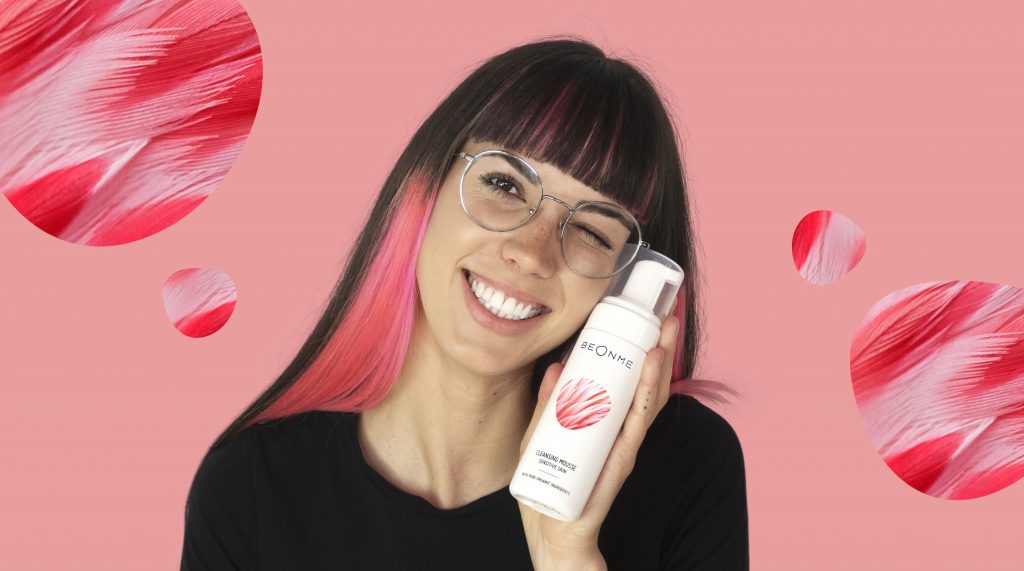
Rosacea: skincare routine
Do you want to know what natural products and cosmetics to use for rosacea? As you well know, rosacea skin is particularly sensitive and reactive, and requires gentle and constant care. It is therefore important to follow a skincare routine for rosacea, free of alcohol and fragrance, and which includes the following steps:
1. Gentle cleansing for skin with rosacea
The crucial first step is an alcohol-free, fragrance-free facial cleanser that gently removes impurities without irritating the skin, such as the BeOnMe Cleansing Mousse for Sensitive Skin. It is an excellent cleanser for those with rosacea, precisely because it is extremely gentle and leaves the skin hydrated, thanks to organic aloe.
2. Rosacea skin relief
Thanks to the soothing and astringent properties of witch hazel water, BeOnMe Purifying Toner helps to reduce the visibility of dilated blood vessels on the skin, contributing to a feeling of freshness and balance.
3. Reduce rosacea redness
Use BeOnMe Astringent Serum is a mix of calming natural extracts such as aloe, lime extract, and orange blossom.
4. Best Cream for Rosacea
BeOnMe’s Combination Skin Cream is perfect if you have rosacea, as it soothes irritated skin, provides hydration without weighing it down, and strengthens the skin barrier.
Consistency is key! Follow this daily skincare routine for rosacea with BeOnMe’s certified and dermatologically tested natural products on sensitive skin and take care of your skin gently and effectively
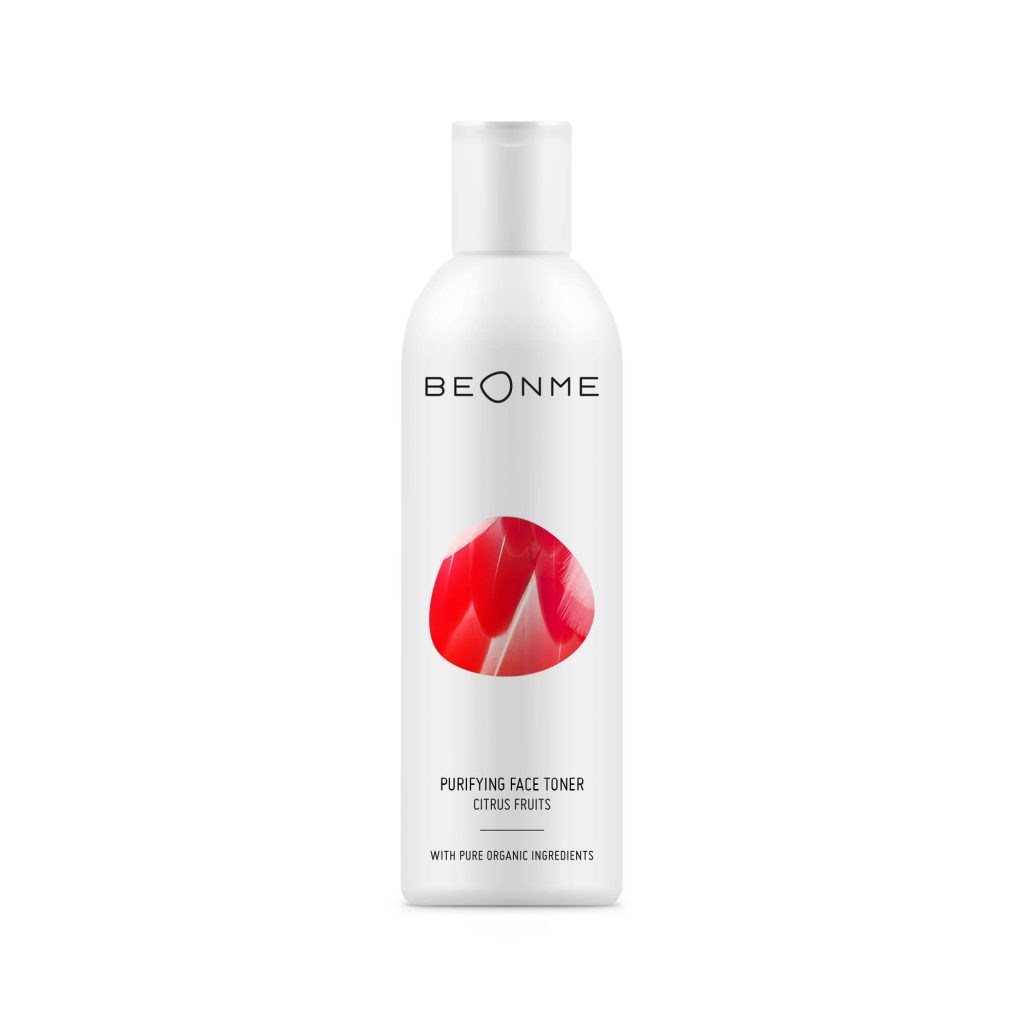
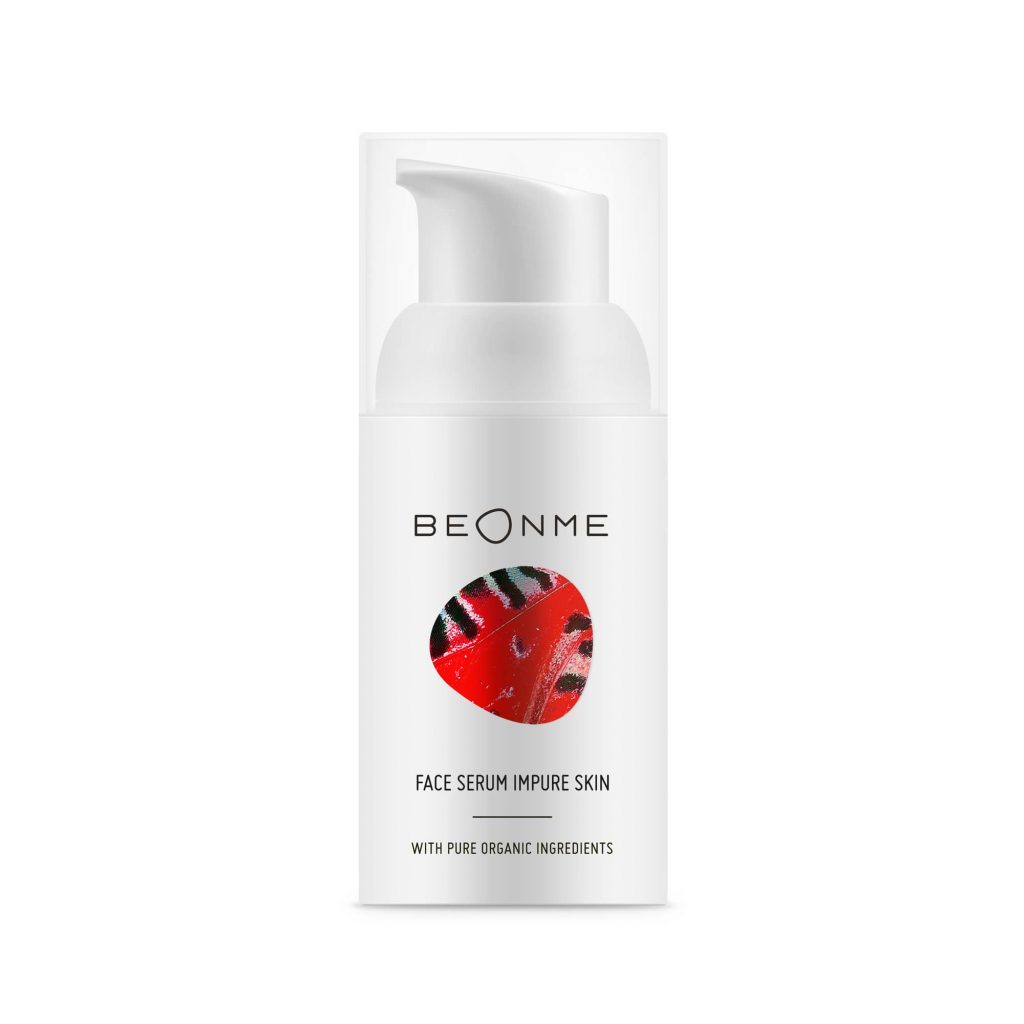
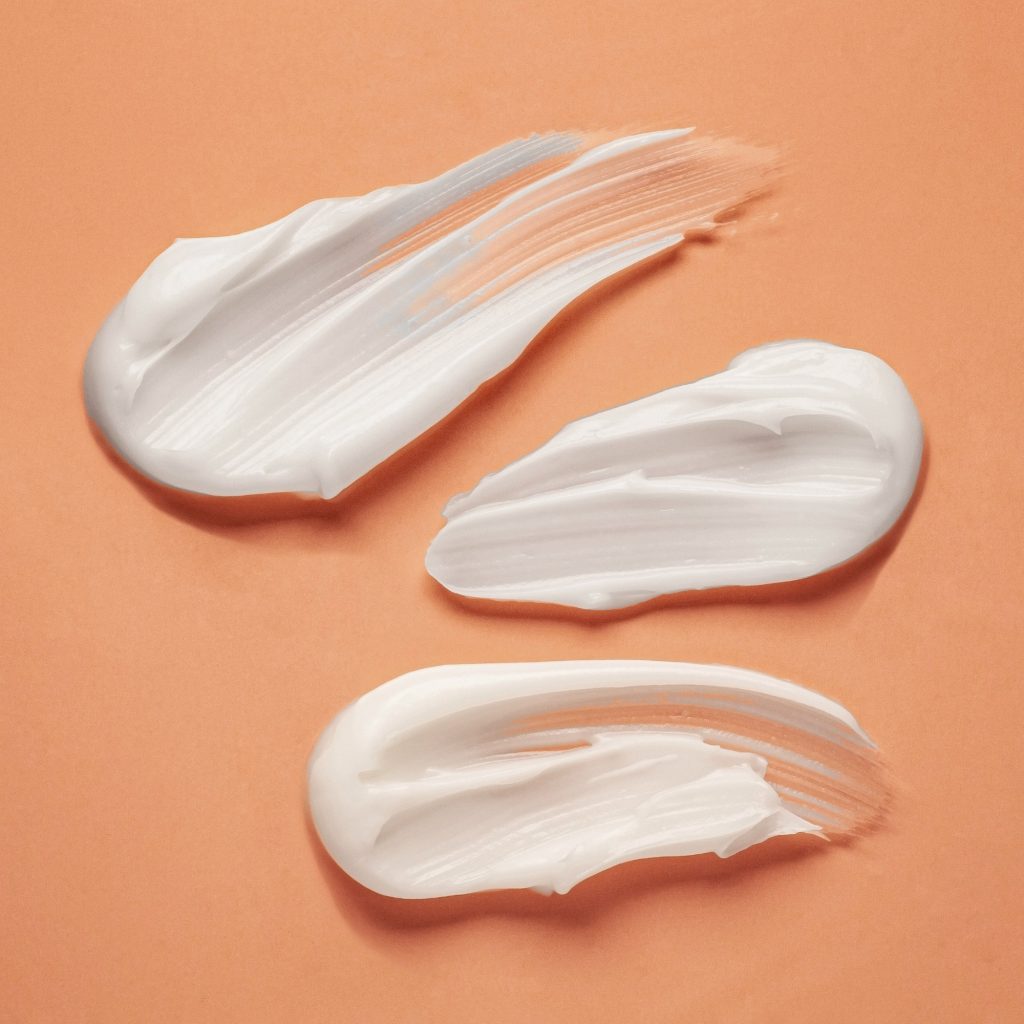
Covering rosacea with makeup
Especially when there is a social occasion or you have to be with others, do you feel uncomfortable? Did you know that the right make-up can help you, even psychologically? It can be a great ally to hide rosacea and feel more confident! Remember, however, that it must be applied with some precautions.
Follow these steps to cover rosacea with makeup:
We recommend that you choose cosmetic products that are moisturizing and protective.
Avoid dry and occlusive cosmetic products, and especially pink or red shades, which risk accentuating the redness of your rosacea skin.
- After cleansing and moisturizing the skin, apply a green concealer to the reddest areas, dabbing the product with your fingers or a brush, without rubbing, and cover the redness trying to even out the complexion.
- Apply a tinted cream or cream foundation that has medium to high coverage. Spread the product with a sponge or brush, starting from the center of the face and blending outwards, without rubbing the skin too much.
- Then apply a clear or lightly tinted powder to set your makeup and mattify your skin. Dust the product with a soft brush or sponge, without pressing or rubbing.
- Turn your attention away from your cheeks and draw it to your eyes, making them up with an eyeshadow that enhances them and with a mascara that makes the look more intense and deeper. Apply products carefully and choose good formulas so as not to irritate the eyes.
- Set your makeup with BeOnMe’s Shake & Fix makeup setting spray, lightweight, moisturizing, soothing and super effective!
At the end of the day, always remove make-up with extreme gentleness, with BeOnMe’s organic cornflower Micellar Water, alcohol-free and fragrance-free, tested in vitro against eye irritation.
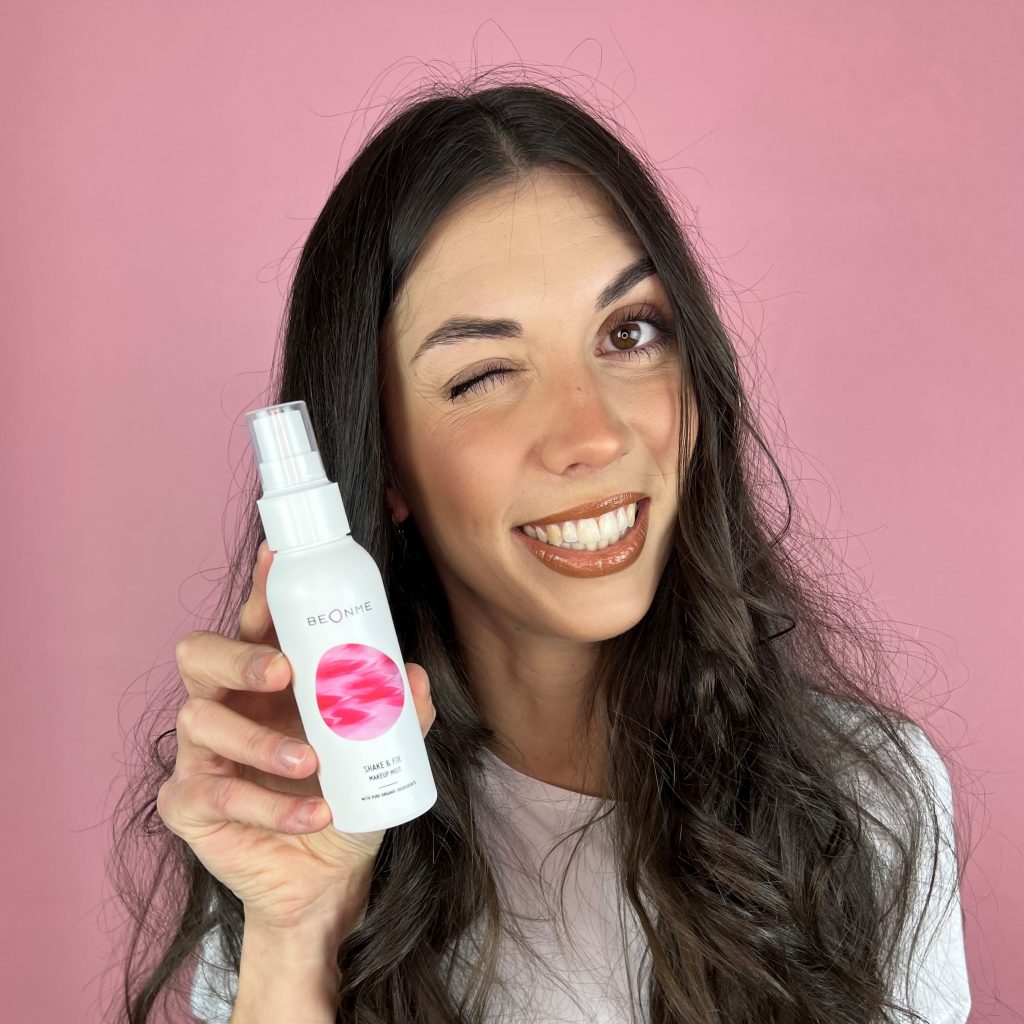
Rosacea: How to Improve Self-Esteem
Have you ever felt embarrassed or overwhelmed by your skin? Oh yes, unfortunately rosacea can cause fears and frustrations related to physical appearance, and being a little-known disease it can generate misunderstandings, prejudices and discrimination.
That’s why it’s important to inform those close to you so that those around you can better understand what’s happening to you and what you’re feeling. This way, you will find more support and understanding. It is important to raise awareness among those who do not know about this disease and tend to underestimate it.
If you see that rosacea becomes a source of stress and psychological distress, to the point of compromising your personal, social and work life, it is important to find psychological support to deal with your fears, frustrations, shame, social isolation, depression or anxiety that may result from this disease.
For example, you can seek the help of a professional, such as a psychologist, who can offer empathetic listening, deep understanding, and effective guidance. You could also participate in support groups, such as associations, forums or blogs, where you can also learn about the experience of others, find mutual solidarity, but also suggestions and qualified information.
How to Deal with Rosacea-Related Fears and Frustrations
Rosacea can cause fears and frustrations related to physical appearance, health, relationships, work, and the future. These negative emotions can negatively affect your quality of life and self-esteem
In addition to the above, we think it is also important:
Making a Personal Journey to Accept Rosacea
Rosacea is a disease that does not depend on your will, but on factors that you often cannot completely control.
Accepting rosacea therefore means acknowledging the reality of the situation, without denying or minimizing it, but also without exaggerating or dramatizing it, it therefore also means accepting oneself, without judging or criticizing oneself, but also without giving up or giving up.
Educating yourself about rosacea
Rosacea is a disease that can generate doubts, uncertainties and false myths. Educating yourself about rosacea means acquiring correct and up-to-date knowledge about the disease, its causes, its symptoms, its treatments and its remedies.
Rely on the dermatologist
A dermatologist is the professional who can offer the most appropriate and safe diagnosis, treatment, and monitoring for rosacea. Rely on a specialist, follow their advice, ask your questions, share your concerns and let them help you.
Take care of yourself: Rosacea is a disease that requires constant care and involves both the body and the mind. Engage in pleasurable activities that can boost your well-being, self-esteem and happiness.
Ask for help: Ask for support and help from other people. Confide in people close to you, such as family, friends, colleagues, or partners, who can offer you understanding and emotional closeness.
Now you know how to best care for your rosacea skin and how to love yourself more!


